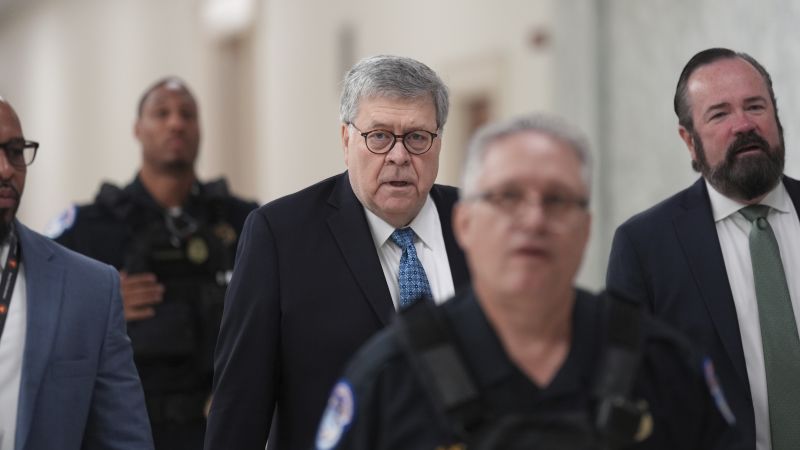On a significant Monday, former U.S. Attorney General Bill Barr made his way to Capitol Hill to participate in a deposition with the House Oversight Committee. This meeting is part of a broader investigation concerning the late financier Jeffrey Epstein, who was accused of sexually abusing underage girls. Barr was the first among ten high-profile witnesses—spanning both Democratic and Republican affiliations—who have been issued subpoenas by the committee to provide testimony relevant to this ongoing case. The testimony from Barr is particularly noteworthy given his leadership role at the Department of Justice during a pivotal time in the Epstein saga.
The House Oversight Committee’s action comes amidst an increasing call for transparency from various Republican lawmakers seeking complete disclosure of records associated with Epstein. This urgency for clarity is driving the committee’s course of action, as they have also issued a subpoena to the Justice Department demanding the provision of any files it holds related to Epstein, albeit with victims’ names redacted. Notably, Barr’s deposition is strategically timed just one day prior to the DOJ’s deadline to submit those records to Congress.
However, the committee chairman, Representative James Comer from Kentucky, has indicated to the press that he does not anticipate the Justice Department will meet this deadline. Comer elaborated that the department is still in the process of collating the relevant records, but he remains optimistic about receiving them “very soon.” His remarks reflect an acknowledgment of the complexities involved in gathering the substantial number of documents that the case necessitates, hinting at a collaborative effort between the committee and the DOJ in response to the situation.
Notably, Barr held the position of Attorney General during President Donald Trump’s initial term and was in office during the tumultuous period leading up to Epstein’s death in 2019. Epstein, charged with numerous serious offenses, died in a federal detention center in New York City, a situation that prompted widespread scrutiny regarding the facility’s oversight and security measures. This context adds tension to Barr’s testimony as many seek answers about what transpired under his watch.
As he arrived for his deposition, Barr refrained from making any comments to reporters, timing his arrival noticeably earlier than his scheduled appointment. This silence had the effect of heightening the interest surrounding his testimony. Following Epstein’s death, Barr publicly expressed his outrage and dismay, labeling the circumstances surrounding the incident as a failure of the correctional system. He initiated an investigation by both the FBI and the DOJ’s Office of Inspector General into the events that led to Epstein’s suicide.
In mid-2023, the DOJ’s Inspector General issued a critical report dissecting the failures of the Bureau of Prisons that culminated in Epstein’s death. While the investigation identified significant lapses in protocol and security, it ultimately concluded that there was no evidence suggesting foul play in Epstein’s death. This underscores the intricacies and challenges surrounding the case, complicating public perceptions and narratives about Epstein’s demise.
At a further political level, House Speaker Mike Johnson has intervened to postpone what would have been an immediate vote by the full House regarding the public release of the DOJ’s Epstein files. The speaker, representing Louisiana, has articulated a commitment to transparency; however, he seeks to allow the relevant authorities adequate time to process the matter without undue pressure.
In addition to Barr, the Republican-majority committee has issued subpoenas to nine prominent individuals for their own private depositions scheduled between August and mid-October. This group includes former Attorneys General such as Eric Holder and Loretta Lynch, former FBI Director James Comey, and notable political figures including former Secretary of State Hillary Clinton and her husband, former President Bill Clinton. The breadth of this inquiry reflects the complex intertwining of politics, justice, and public interest surrounding the enigmatic case involving Jeffrey Epstein, promising to keep the narrative evolving and the public engaged in the pursuit of accountability and truth.











